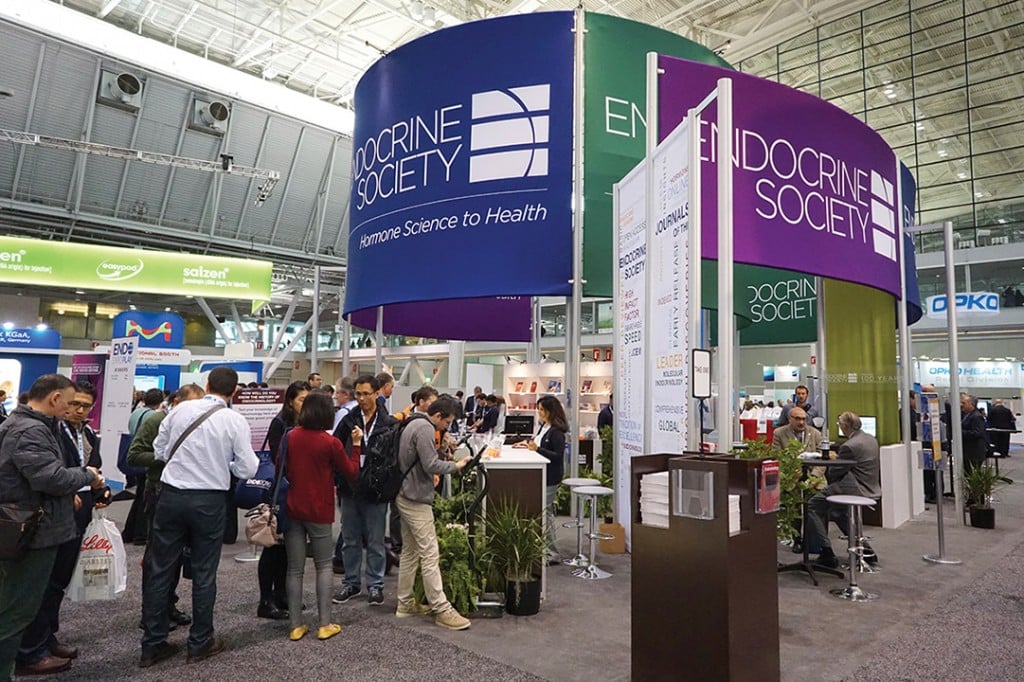
No doubt your days will be packed while you’re at San Francisco’s Moscone Center, weaving through the crowds as you make your way to various sessions and presentations at ENDO 2020. Here are just a few highlights – among hundreds – that might appeal to you.
Saturday March 28
The Business of Running a Lab: Top 5 Strategies to Running a Successful Lab, 9:45 a.m.
This session will cover important tips on: 1. Hiring and personnel management; 2. Successful budgeting; 3. Projects and resource management; 4. Negotiating for what you need; and 5. Time management (research, teaching, committees, etc.) with time for peer mentoring and discussion with successful scientists.
Cushing Disease and Syndrome: When Genes Go Wrong, 4:15 p.m.
There have been significant advances in our understanding of the genetic mutations that cause both pituitary and adrenal driven cortisol excess. This symposium will highlight the translational research in this area and will include pituitary, adrenal, and familial Cushing presentations.
Sunday March 29
Meet-the-Scientist: Bench to Bedside: Bringing Drugs from the Lab to the Patient, 8:00 a.m.
Endocrine Reviews editor-in-chief, Daniel J. Drucker, MD, Mt. Sinai Hospital, Toronto, Ontario, Canada, hosts this session that gives attendees the opportunity to ask questions about the process of going from a basic science observation to commercialization. Participants need to sign up ahead of time and will have an opportunity to pre-submit questions as well as during the session. The session will start with a 20-minute presentation focused on process rather than information transfer, followed by structured questions.
Communicating the importance of endocrine research to funders and the public is an essential skill. Back for its third year, Knockout Rounds provide trainees and early-career professionals with a novel presentation opportunity. With a single slide each, presenters will describe the impact of their research on enhancing health outcomes. Attendees vote for their favorite along with an esteemed panel of judges.
Monday March 30
What’s New in 131-I Refractory Thyroid Cancer? 9:15 a.m.
Radioiodine refractory thyroid cancers lose the ability to effectively update iodide, thus limiting the efficacy of this therapy. New strategies to promote redifferentiation increased iodine avidity will be discussed in this session. New genomic studies on Hurthle cell carcinoma will be also be addressed.
Update on Clinical Assay Issues: What Clinicians Should Know, 4:15 p.m.
After a needs assessment was performed by an informal survey of past symposium attendees and discussions with practicing clinical endocrinologists, the three critical issues to be discussed using a case-based approach will be: 1. The laboratory monitoring of transgender adolescents and adults during hormone therapy; 2. The controversies in the laboratory diagnosis of secondary adrenal insufficiency; and 3.When LC-MS/MS is critical in the diagnosis of challenging patients.
 Tuesday March 31
Tuesday March 31
Maximizing the Mentor and Mentee Relationship, 9:30 a.m.
This session will discuss the importance of building successful mentoring relationships as a mentee and as a mentor to others. Panelists will teach the importance of being an effective mentor, how to be a good mentee, and the benefits of having multiple mentors. Breakout groups will engage participants with common scenarios and discuss responses.
The Myth and Reality of Vitamin D, 11:45 a.m.
Numerous recent and large trials in Vitamin D are addressing important disease outcomes. These trials are difficult to design and complex to interpret. The speakers will reflect on their experiences as leading investigators of these trials.
These sessions are just a tiny fraction of the dozens of options available to attendees that cover a vast range of topics in patient treatment outcomes, basic science, and clinical research.



 Tuesday March 31
Tuesday March 31